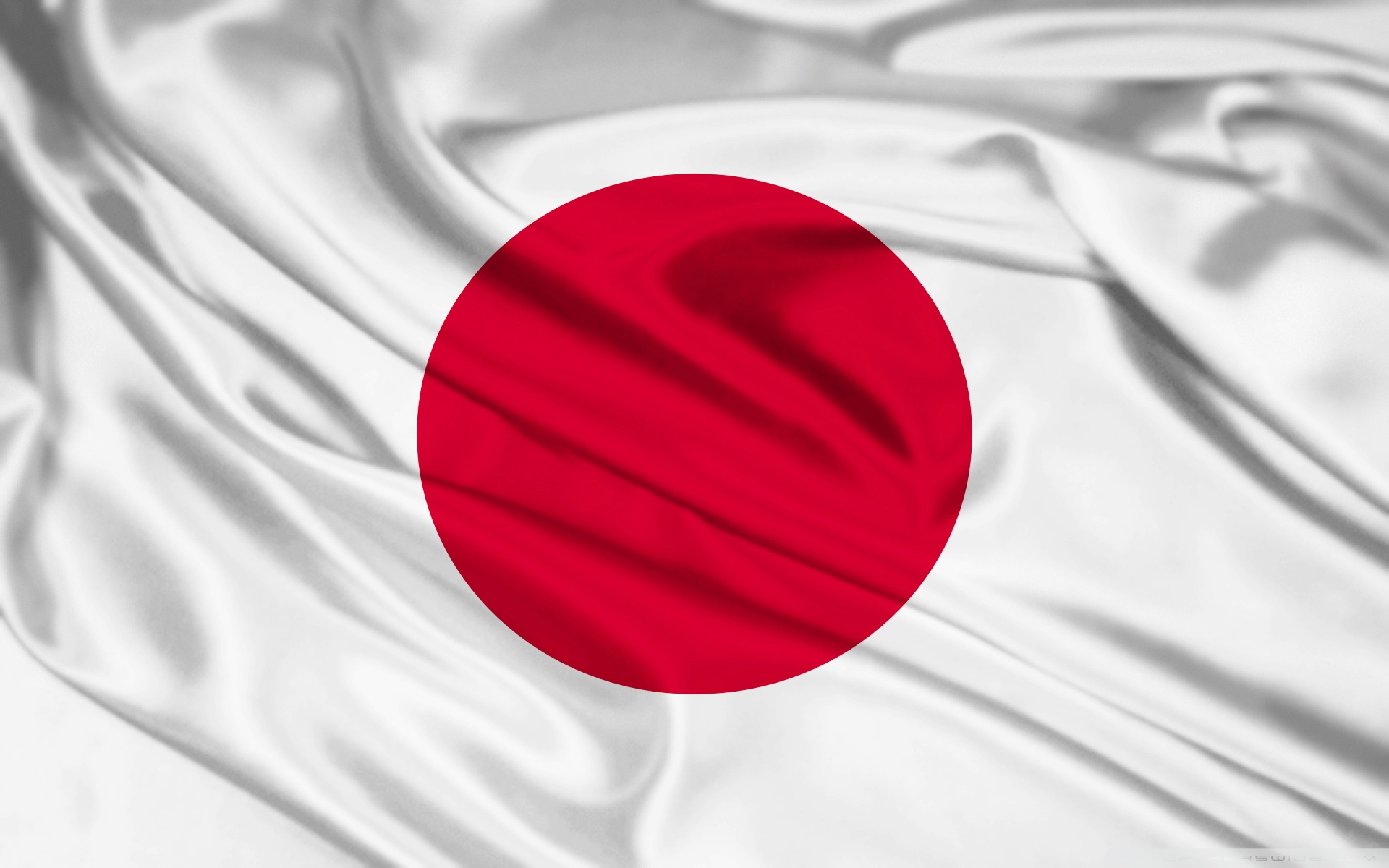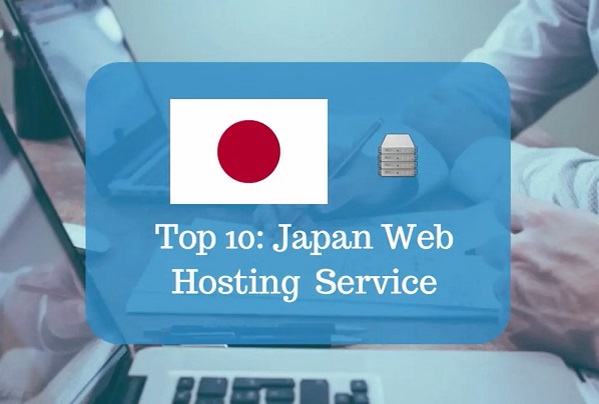The Best Japanese Hosting Providers
 Japanese hosting companies provide one of the best services in Asia. Their data centers are equipped with high-end servers and modern technologies. The only issue with Japanese hosting providers is the lack of English speaking support. Moreover, most services are pre-configured via Japanese, thus you have to be familiar with the service itself in order to use it properly.
Japanese hosting companies provide one of the best services in Asia. Their data centers are equipped with high-end servers and modern technologies. The only issue with Japanese hosting providers is the lack of English speaking support. Moreover, most services are pre-configured via Japanese, thus you have to be familiar with the service itself in order to use it properly.
Important! If you want to provide the best speed for your website visitors you should take a look to our rating. In this list, we have collected companies that provide high-quality services for customers in Japan. Local Japanese companies you can find here
Our rating contains only those Japanese companies that offer English speaking support, even though there are very few of them. If you cannot find a hosting provider that meets your requirements in this rating, you are welcome to check the list of Chinese hosting providers here. The ping time and service quality will not differ greatly but Chinese hosting is al little bit cheaper.

What are the common features offered by Japanese web hosting providers?
Japanese web hosting providers typically offer a range of features similar to those provided by web hosting companies around the world. Some common features include:
1. Domain registration: Many providers offer domain registration services, allowing customers to purchase and manage domain names through their hosting account.
2. Storage and bandwidth: Providers offer various hosting plans with different storage capacities and bandwidth limits to cater to the needs of different customers.
3. Email hosting: Email hosting and webmail services are often included, allowing customers to create and manage email accounts associated with their domain.
4. Control panel: Hosting providers typically offer a user-friendly control panel, such as cPanel or Plesk, to manage website settings, databases, email accounts, and more.
5. One-click installations: Many Japanese web hosting providers offer one-click installations for popular content management systems (CMS) like WordPress, Joomla, and Drupal, making it easy for customers to set up and manage their websites.
6. SSL certificates: SSL certificates are often included or available for purchase, providing encryption for secure data transfer between the server and the user's browser.
7. Customer support: Most providers offer customer support through various channels, such as phone, email, or live chat, in both Japanese and English.
8. Backup and recovery: Providers typically offer backup services to protect website data and facilitate easy recovery in case of data loss or server issues.
9. Security features: Web hosting providers in Japan typically offer a range of security measures, such as malware scanning, DDoS protection, and firewall configurations.
10. Scalability: Many Japanese hosting providers offer the flexibility to upgrade or downgrade hosting plans as the needs of the customer's website change, providing a seamless transition without affecting the website's performance.
Note that the specific features offered by different providers may vary, so it's essential to carefully review each provider's offerings before making a decision.
Specific regulations or requirements for hosting websites in Japan
When hosting websites in Japan, there are several regulations and requirements to keep in mind. One important aspect is the registration of domain names, as the country has its own domain name registry, JPRS, which manages the .jp top-level domain. To register a .jp domain, it is generally necessary to have a local presence in Japan, such as a company, organization, or individual with a valid address.
In terms of data privacy and protection, Japan has a comprehensive data protection law called the Act on the Protection of Personal Information (APPI). This law applies to businesses handling personal information and website operators must comply with its provisions. This includes obtaining consent from users for the collection and use of their data and ensuring proper data management and security.
Japanese law also imposes certain restrictions on the content of websites hosted in the country. Websites must not promote or facilitate illegal activities, and if they contain adult content, they must have appropriate age verification measures in place.
Website owners should also respect local copyright and intellectual property laws, such as the Copyright Act of Japan and related guidelines, in order to prevent and address instances of copyright infringement.
Compliance with advertising regulations is essential as well. Any website that contains advertising content must adhere to the Act against Unjustifiable Premiums and Misleading Representations, which sets guidelines for fair and accurate advertising practices.
Finally, while not legally binding, it is recommended that website owners follow the JIS X 8341 series, Japan's guidelines for ensuring accessibility for people with disabilities, to make their sites accessible to all users.
By paying attention to these aspects and adhering to local regulations and requirements, website owners can avoid potential legal issues and provide a better experience for their users.
What is the JPRS, and how does it relate to Japanese web hosting?
The Japan Registry Services Co., Ltd. (JPRS) is the organization responsible for managing and administering the .jp top-level domain (TLD) for Japan. Established in 2000, JPRS plays a crucial role in the domain name system (DNS) infrastructure in the country, which directly relates to Japanese web hosting.
JPRS oversees the registration, maintenance, and overall management of .jp domain names, ensuring that they follow specific rules and regulations. The organization works in collaboration with accredited domain registrars that help businesses and individuals register their desired .jp domain names.
When it comes to Japanese web hosting, JPRS plays an essential role as the primary authority for .jp domains. A .jp domain signifies a local presence in Japan and lends credibility to businesses and organizations targeting the Japanese market. To register a .jp domain, a local presence, such as a company, organization, or individual with a valid address in Japan, is generally required.
In summary, JPRS is the governing body for .jp domain names, and its management of the domain name system is an integral aspect of Japanese web hosting.
What is the Act on the Protection of Personal Information (APPI), and how does it impact web hosting in Japan?
The Act on the Protection of Personal Information (APPI) is a comprehensive data protection law in Japan that governs the handling, use, and disclosure of personal information by businesses and organizations. Enacted in 2003 and later amended in 2017, the APPI aims to protect individuals' privacy rights while ensuring the proper and secure use of personal data in the digital age.
The APPI impacts web hosting in Japan in several ways, as it imposes certain requirements and obligations on website operators who handle personal information:
- Obtaining consent: Website operators must obtain consent from users before collecting and processing their personal data. This includes clearly stating the purpose of data collection, the types of data collected, and how the data will be used.
- Data management: Website operators must implement appropriate security measures to prevent unauthorized access, loss, alteration, or leakage of personal information. This involves using secure data storage, encryption, and other security best practices.
- Data retention and deletion: Personal information must be retained only for as long as necessary to fulfill the stated purpose of collection. Once the purpose is fulfilled, the data must be deleted securely.
- Data sharing and disclosure: If personal information is shared with third parties or transferred across borders, website operators must ensure that the recipients adhere to the same data protection standards as mandated by the APPI.
- User rights: The APPI grants individuals certain rights regarding their personal information, such as the right to access, correct, or delete their data. Website operators must establish processes to accommodate and respond to user requests concerning their data.
Web hosting providers in Japan may also need to demonstrate compliance with the APPI and provide tools and resources to help their clients (website operators) adhere to the law. Failure to comply with the APPI may result in penalties, fines, or reputational damage.
In conclusion, the APPI directly impacts web hosting in Japan by imposing data protection requirements on website operators and indirectly influencing web hosting providers to offer compliant services and tools.
What are the key aspects of Japan's Copyright Act and intellectual property laws that affect web hosting?
Japan's Copyright Act and intellectual property laws play a significant role in governing how websites hosted in the country handle copyrighted material and other intellectual property rights. Some key aspects that affect web hosting include:
- Copyright protection: Japan's Copyright Act grants authors and creators exclusive rights to their works, such as reproduction, distribution, performance, public transmission, display, and adaptation. Website owners must ensure that they do not infringe on these rights by hosting or sharing copyrighted content without permission.
- Fair use limitations: Japan has a limited concept of fair use, called "private use exception," which allows the use of copyrighted material for specific purposes, such as research, criticism, or news reporting. Website owners should understand the scope of this exception and avoid relying on it excessively, as it may not provide full protection from copyright infringement claims.
- Responsibility for infringement: Website owners are responsible for ensuring that their websites do not facilitate copyright infringement. They must respond promptly to takedown requests and remove infringing content, or they may face legal liability.
- Safe harbor provisions: Japan's Copyright Act includes safe harbor provisions that protect internet service providers (ISPs) and web hosting providers from liability for copyright infringement committed by their users, as long as they follow certain guidelines, such as promptly removing infringing content upon notification.
- Trademarks and patents: In addition to copyright, website owners should also be aware of trademark and patent laws in Japan. Unauthorized use of registered trademarks or patented inventions can lead to legal disputes and penalties.
To ensure compliance with Japan's Copyright Act and intellectual property laws, website owners should:
- Obtain necessary permissions or licenses for using copyrighted material, trademarks, or patented inventions.
- Monitor their websites for potential infringement and respond promptly to takedown requests.
- Educate themselves about the scope and limitations of fair use and other exceptions under Japanese law.
- Choose web hosting providers that adhere to the safe harbor provisions and offer tools and resources to help with copyright and intellectual property management.
By following these guidelines, website owners can reduce the risk of legal disputes and penalties related to intellectual property infringement.
We highly recommend not to purchase the cheapest hosting package. Usually, they come with a row of issues: the server is often down, the hardware is outdated, lousy and slow support, registration and payment errors, etc.
For your convenience, we have created a tool that can help you to choose the right hosting package for you just by answering a few simple questions.
CMS is a content management system. A lot of hosting providers offer so-called CMS optimized packages. However, this is a marketing trick because most CMSs do not have special software or hosting requirements.
Trial period is a period of time, usually from 7 to 30 days, during which you can use the hosting services for free to test them.
Moneyback policy allows the customer to receive a refund for his order within a certain period after the purchase.
OS means the operating system is installed on the server. We recommend to choose Linux hosting unless your website requires another OS.
Bulletproof hosting - it’s a type of service that allows to host almost any type of content, even the restricted one (adult content, warez, spam etc). Bulletproof hosting providers do not remove your content in case someone reports an abuse.
Unlimited hosting - refers to companies that provide packages with unlimited disk space, bandwidth, number of domains, databases or email accounts, etc. This is usually a marketing trick but sometimes you can find something worth a try.
Secure hosting - it’s a type of service when the hosting provider is mostly responsible for the security of the user’s account: updates the software installed on their servers, provides an antivirus and malware scanner, firewalls and basic anti-DDoS protection, etc.
DDoS-protected hosting - companies that provide packages that include anti-DDoS protection. These packages are considerably more expensive than regular ones. Nevertheless, they’re totally worth their price because the company will ensure that your website is secured from cyber attacks.
Most websites require MySQL and PHP installed on the server to work correctly. Almost all hosting providers support these technologies.
ASP.NET is a Microsoft web application development platform.
The more comfortable the control panel is, the easier will it be for you to change the website and hosting account settings.
Most hosting providers that are in TOP20 in our rating offer user-friendly control panels, such as cPanel, Plesk or DirectAdmin. That’s why we recommend to pay attention to other, more important parameters, while choosing a hosting provider.
























